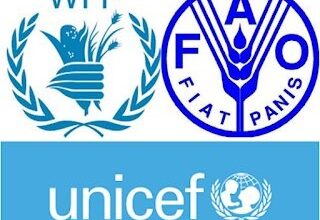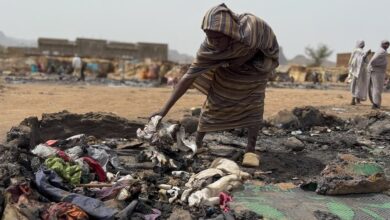“Ending external interference” is the path to peace in Sudan, says IGAD

Ethiomonitor -Addis Ababa
September 26, 2025
IGAD Executive Secretary Workneh Gebeyehu (PhD) said the war, which must be halted, in Sudan is destroying the northeast African nation
. “The people of Sudan cannot wait. Their lives, their dignity, and their future depend on our immediate response,” he said at the ministerial meeting on Sudan on the margins of UNGA80, convened by the EU, AU, France, Germany, and the UK.
“Ending external interference” is the key path to bringing peace in Sudan, he added, in addition to securing an inclusive, Sudan-led process with a clear roadmap to civilian rule and forging unified and coordinated mediation.
He also reaffirmed IGAD’s commitment to these principles.
Sudan, home to millions of people, has long experienced tensions in the political and social spectrum and has had over 15 military coups since its independence in 1956. The 21st century in Sudan has been characterized by prolonged instability, racial and ethnic tensions, and a revolution ending with a coup d’état that abolished Al-Bashir’s lasting regime.
The weakening economy of Sudan and the intensifying protests that followed were accompanied by a growing rift between the Sudan Armed Forces (SAF), the military forces, and the Rapid Support Forces (RSF), the paramilitary forces formerly operated by the Government of Sudan, which succeeded the Janjaweed militias that the Sudanese regime operated in Darfur in the early 2000s.
The country plunged into a full-scale conflict on April 15, 2023, when fighting broke out between the two rival factions of the military government in the capital Khartoum and quickly escalated to other regions of Sudan.
The armed conflict is affecting millions of lives in Sudan and causing mass displacement, food insecurity, and educational challenges that require immediate humanitarian help. Right now, Sudan is experiencing a humanitarian catastrophe, with over 25 million people in desperate need of assistance.
, said the war, which must be halted, in Sudan is destroying the northeast African nation
. “The people of Sudan cannot wait. Their lives, their dignity, and their future depend on our immediate response,” he said at the ministerial meeting on Sudan on the margins of UNGA80, convened by the EU, AU, France, Germany, and the UK.
“Ending external interference” is the key path to bringing peace in Sudan, he added, in addition to securing an inclusive, Sudan-led process with a clear roadmap to civilian rule and forging unified and coordinated mediation.
He also reaffirmed IGAD’s commitment to these principles.
Sudan, home to millions of people, has long experienced tensions in the political and social spectrum and has had over 15 military coups since its independence in 1956. The 21st century in Sudan has been characterized by prolonged instability, racial and ethnic tensions, and a revolution ending with a coup d’état that abolished Al-Bashir’s lasting regime.
The weakening economy of Sudan and the intensifying protests that followed were accompanied by a growing rift between the Sudan Armed Forces (SAF), the military forces, and the Rapid Support Forces (RSF), the paramilitary forces formerly operated by the Government of Sudan, which succeeded the Janjaweed militias that the Sudanese regime operated in Darfur in the early 2000s.
The country plunged into a full-scale conflict on April 15, 2023, when fighting broke out between the two rival factions of the military government in the capital Khartoum and quickly escalated to other regions of Sudan.
The armed conflict is affecting millions of lives in Sudan and causing mass displacement, food insecurity, and educational challenges that require immediate humanitarian help. Right now, Sudan is experiencing a humanitarian catastrophe, with over 25 million people in desperate need of assistance.





